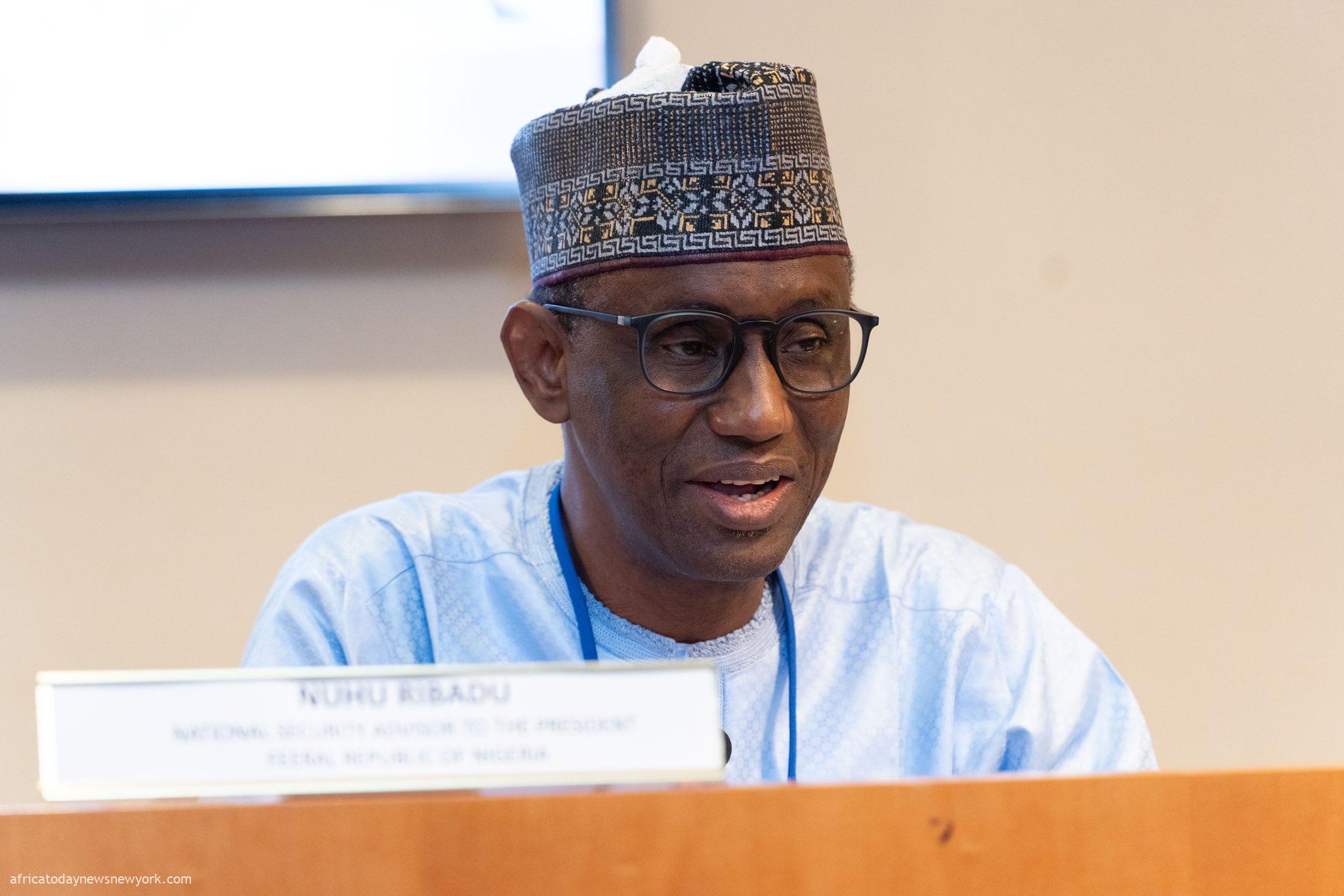The Office of the National Security Adviser (ONSA) in Nigeria has moved to secure Critical National Information Infrastructure (CNII) by embarking on a crackdown on people who abuse the internet space.
It directed all law enforcement agencies, regulators, businesses and stakeholders to put in place mechanisms for the full enforcement of the Cybercrimes Prohibition Act.
The Head-Strategic Communications, ONSA, Mr. Zakari Mijinyawa, explained that the directive will also counter-terrorism and violent extremism, strengthen national security and protect economic interests.
In a statement which was made available to Africa Today News, New York, Mijinyawa described the directive as part of the concrete steps being taken to prevent the use of social media and other platforms by terrorists and organised criminal groups.
Read Also: Why Social Media Is A Local, Global Threat – Ribadu
According to him, Nigeria had in 2022, joined 66 other countries that signed and ratified the Budapest Convention on Cybercrime.
The convention was to enhance international cooperation, provide common platform and procedural tools for efficient and safe cyberspace.
Mijinyawa said the directive was pursuant to Section 41(2) (a) of the Cybercrime Act 2015 requiring conformity of Nigerian cybercrime and cybersecurity laws and policies with regional and international standards.
He said that African leaders had recently stressed the urgent need for improved deployment of greater support and resources towards strengthening cybersecurity activities in Africa.
The ONSA director also added that the measure was also in line with the agreement reached at the just concluded High Level African International Counter Terrorism Meeting in Abuja.
Mijinyawa said additional resources would be deployed to counter terrorism and violent extremism as provided in section 44(5) of the Cybercrimes Act.
Recall that Ribadu had earlier in the week asserted that negative use of social media has constituted both local and global threats and, as such, presented an immediate national security priority for the President Bola Tinubu-led government.
Ribadu revealed that the National Security Strategy (NSS) was last reviewed in 2015, a situation that gave rise to the launch of the 2019 version, which he said was now under review.

